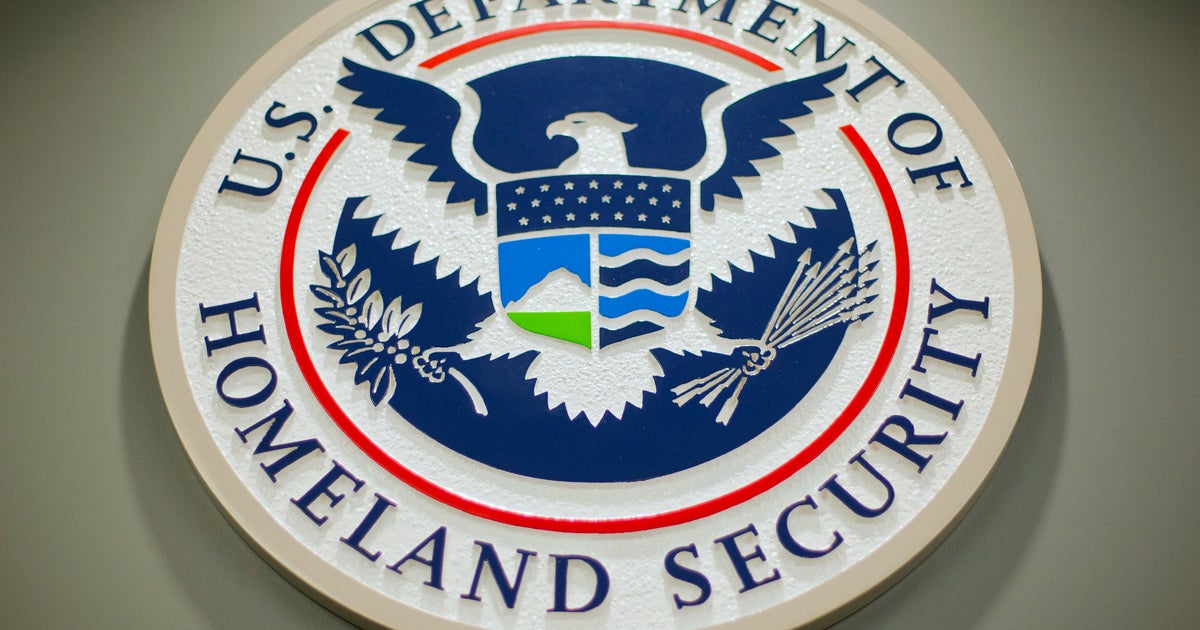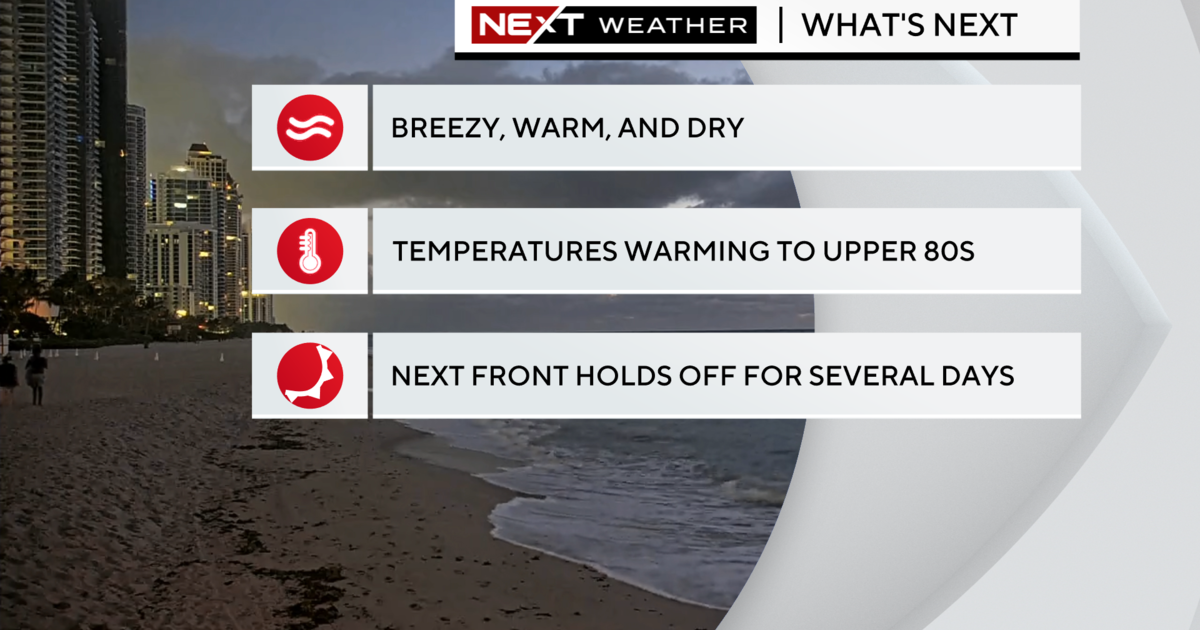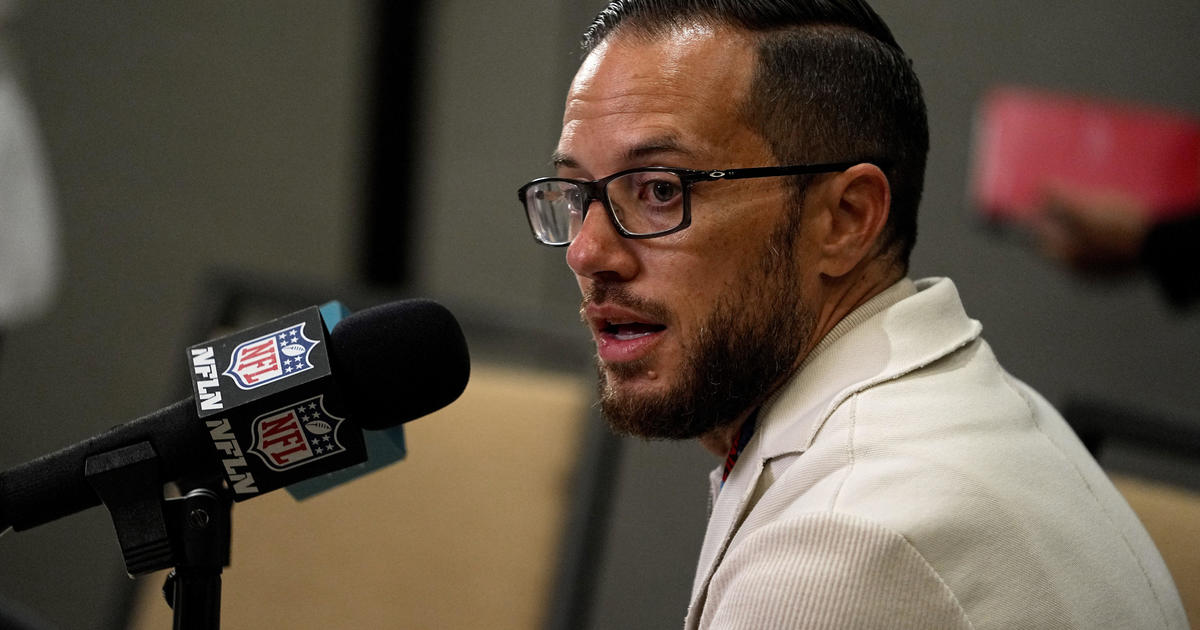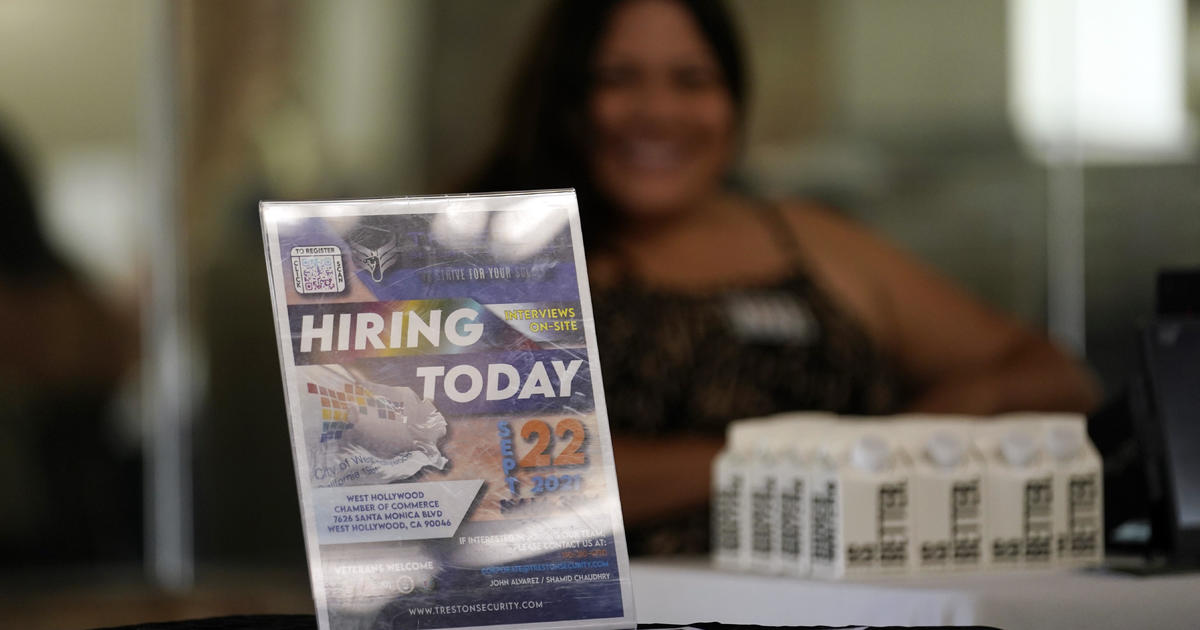Ending Of 'Wet Foot, Dry Foot' Policy Draws Condemnation, Praise
Follow CBSMIAMI.COM: Facebook | Twitter
MIAMI (CBSMiami) – The Obama administration's ending of the so-called "wet-foot, dry-foot" policy for Cuban migrants has drawn praise and condemnation.
On Thursday, President Barack Obama announced that the policy, which has been in place since the mid-1990s, had been revoked along with the special Cuban Medical Professional Parole program.
"Effective immediately, Cuban nationals who attempt to enter the United States illegally and do not qualify for humanitarian relief will be subject to removal, consistent with U.S. law and enforcement priorities. By taking this step, we are treating Cuban migrants the same way we treat migrants from other countries," President Obama said in a statement.
The administration said the Cuban Medical Professional Parole Program was terminated because with the normalizing of relations, the U.S. and Cuba were working together to combat diseases.
"By providing preferential treatment to Cuban medical personnel, the medical parole program contradicts those efforts, and risks harming the Cuban people. Cuban medical personnel will now be eligible to apply for asylum at U.S. embassies and consulates around the world, consistent with the procedures for all foreign nationals," said the statement from the White House.
Janette Guillen, whose mother arrived in the Mariel boatlift, said she understands the plight of Cubans wanting to live in the United States. But she also feels many have abused what the U.S. has to offer.
"A lot of the Cubans, the generation back then, they actually came here and they worked, they fought for their freedom, they appreciated their freedoms, versus today, we just come here and we think that we deserve everything and it just doesn't work that way, you need to work, it's what you came here for. You want freedom, get the freedom of work, appreciate it," she said.
Cuban-born immigration attorney Grisel Ybarra says it's about time.
Like many of the older generation of Cuban-American migrants, she believes most of today's arrivals are coming for economic reasons, not political persecution.
"You gotta stop this. You've got to stop trying to cover the sun with your finger. This is over. The people that are coming in right now are not political refugees," she said. "Russia is a communist country, and if a Russian comes here, he has to prove asylum in order to stay. Why should be the Cubans be any different? And I'm Cuban. Why should the Cubans be treated any different? We can't justify the difference any more. We can't."
Second-generation Cuban-American Frank Cantero said he was pleased with the change in policy. He too, is concerned about people taking advantage of the assistance migrants receive upon arrival in the U.S.
"They get here, we receive them with open arms and then they return frequently for vacation or go back," said Cantero.
Since the 90s, Cuban migrants have been granted not just residency, but funding of $10,000 to $15,000 in financial assistance and free healthcare – all under federal law.
"It's not fair. So it's going to be a relief to society, to the community," Ybarra said. "Number two, the medical systems. I mean they are entitled to everything, and the sad part is they come here, they get medical assistance, and they go back to Cuba."
Miami-Dade Mayor Carlos Gimenez said he too had concerns about the open door policy.
"The decision to eliminate the so-called 'wet-foot, dry-foot' policy will undoubtedly impact our community. While the policy granted relief to many Cubans who were being persecuted by the Castro regime, I was concerned that "wet-foot, dry-foot" was being abused and required adjustments," said Gimenez in a statement.
Ramon Saul Sanchez, who heads the Democracy Movement, said he's concerned that people on the island will not get accurate information – that they are not automatically offered legal status on arrival - and make the dangerous trip.
"They might just make a decision on false premises that they need to rush over here and that could create an exodus and unfortunately death in the straits of Florida," Sanchez.
Sanchez said he also fears people who do make it here going forward will be forced to live in the shadows.
"They have to live in fear of being arrested, being repatriated, being separated from their families, those that already have children here," he said.
There was an expectation the U.S. policy could change under incoming President Donald Trump.
Thousands of immigrants are currently in Central America and Mexico making a pilgrimage that is now questionable.
"As soon as they get to the border, they are going to be turned back," said Dr. Eduardo Gamarra.
Gamarra, a political science professor at FIU, believes most of the Cuban nationals headed to America may very well still be coming through.
"We are probably now going to see a bunch of illegal border crossings," he said.
And if Trump brings back "wet foot, dry foot?"
"If President Trump decides to revert that, you may have a new Mariel boatlift," Gamarra said. "Because as soon as he lifts it, in Cuba, the immediate impact is everyone is going to want to leave before they close it again."
Almost all of South Florida Cuban-American congressmen lashed out at President Obama for the change in policy.
"The Cuban Adjustment Act has provided countless Cubans the opportunity to escape the Castro tyranny. However, in recent years it has also led to growing abuses. While some changes were needed, we must work to ensure that Cubans who arrive here to escape political persecution are not summarily returned to the regime, and they are given a fair opportunity to apply for and receive political asylum," said Republican Sen. Marco Rubio in a statement.
Republican Congresswoman Ileana Ros-Lehtinen issued a statement condemning the discontinuation of the medical program.
"Castro uses refugees as pawns to get more concessions from Washington so there is no reason to do away with the Cuban medical doctor program, which is a foolhardy concession to a regime that sends its doctors to foreign nations in a modern-day indentured servitude. The repeal of the Cuban Medical Professional Parole Program was done because that's what the Cuban dictatorship wanted and the White House caved to what Castro wants," said Ros-Lehtinen in a statement.
"In another bad deal by the Obama administration, it has traded wet foot, dry foot for the elimination of an important program which was undermining the Castro regime by providing an outlet for Cuban doctors to seek freedom from forced labor which only benefits an oppressive regime," she concluded.
Dr. Gamarra points out ending the abuse of the system by Cuban migrants, was actually a Republican campaign talking point.
"For all practical reasons, it's sort of the same thing. What Obama did is he kind of took their political agenda and I think he did Trump a huge favor," Gamarra said.
The United States Conference of Catholic Bishops said in a statement they too disagreed with the policy change.
"I am disappointed over President Obama's sudden policy change ," said Bishop Joe Vasquez, Chairman of the Committee on Migration. "While we have welcomed normalizing relations with Cuba, the violation of basic human rights remains a reality for some Cubans and the wet foot, dry foot policy helped to afford them a way to seek refuge in the United States."
The administration's change in policy, however, found support in Democratic Sen. Bill Nelson.
"The 'wet foot, dry foot' policy was put in place many years ago to help those who were fleeing Castro's repressive regime. I believe changing this outdated policy in order to be fair to all and also to prevent people from abusing the system is the right thing to do," Nelson said in statement.
The Cuban American National Foundation (CANF) echoed that sentiment. The organization said it never considered the "wet foot, dry foot" an effective, or fair, option for a difficult situation caused by Cubans fleeing the island for the U.S.
"The revision of the current policy is in order, as long as the rights to a due process for those with bona fide claims of persecution are given the full protection of the law and a humanitarian, effective solution is given to the thousands of Cubans stranded throughout Latin America," it said in a statement.
"The solution to the Cuban problem cannot be found anywhere else other than inside Cuba by the will and effort of patriotic Cubans. Fleeing is not and will never be the answer, but those who are persecuted, discriminated and under threat of perish or incarceration and resort to seeking asylum in the United States, must be given all the protection that they rightly deserve."



